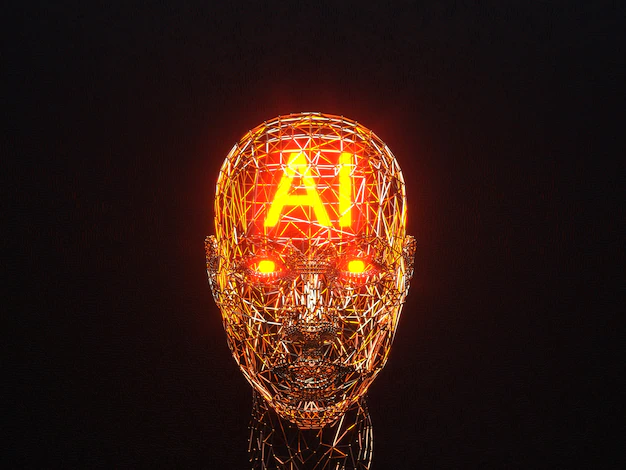Content creation has always been at the heart of digital marketing, with quality content driving traffic, engagement, and conversions. But as Artificial Intelligence (AI) continues to evolve, it promises to revolutionize the process.
One bold claim being made is that AI can write SEO-optimized content up to three times faster than human writers. Is this claim grounded in reality, or is it merely marketing hype? This blog will explore how AI and human writers compare, highlighting the benefits, challenges, and practical strategies for integrating AI into content workflows. By the end, you’ll have a clearer understanding of where AI fits into your digital marketing strategy.
AI vs. Human Writers: A Comparative Analysis
To truly evaluate the claim that AI writes faster and more effectively, we need to examine three crucial factors: speed, quality, and SEO optimization.
Speed: The Time Advantage of AI
AI’s most significant strength lies in its speed. AI-powered tools like Jasper, Outwrite, and Copy.ai can generate thousands of words of content in mere minutes. By leveraging machine learning and natural language processing (NLP), AI can analyze a topic, synthesize information, and present coherent text much faster than a human could.
However, human writers still hold an edge when it comes to breaking down complex topics or crafting longer, thought-provoking pieces. While AI drafts quickly, editing, refining, and aligning content to a specific tone or style often requires human intervention.
Verdict: AI wins in speed, yet human input remains essential for polishing content.
Quality: How Does AI Measure Up?
AI has come a long way in writing coherent, readable content. Tools like Jasper and OpenAI’s ChatGPT create grammatically correct and contextually appropriate text with impressive accuracy. They also thrive in producing informational or objective content based on existing data.
However, when it comes to creativity, emotional resonance, or nuanced storytelling, human writers outperform AI. An AI cannot grasp cultural subtleties, inject humor, or connect emotionally with readers in the same way a person can. Tools like Grammarly Premium or Copysmith may help refine tone, but the human touch is still irreplaceable in creative fields.
Verdict: Human writers sustain an edge in creativity and nuanced storytelling, but for repetitive or standardized tasks, AI delivers quality efficiently.
SEO Optimization: AI vs. Human Writers
AI tools are designed with SEO in mind. Platforms like SurferSEO and Clearscope are great examples—they analyze millions of data points in seconds to recommend keywords, headings, and optimized text structures.
Human writers, on the other hand, use experience and research to ensure SEO best practices are incorporated organically. While AI excels at technical SEO tasks like keyword density and metadata optimization, humans are often better at producing content that reads naturally and keeps readers engaged—two factors that search engines increasingly prioritize.
Verdict: AI offers a technical advantage in SEO optimization, but humans enhance engagement and authenticity.
Benefits of Using AI for SEO Content
Though AI has its limitations, its advantages cannot be ignored, particularly for fast-paced, large-scale content needs.
1. Time and Cost Efficiency
AI significantly reduces the time required to generate content. For teams juggling tight deadlines or campaigns requiring multiple articles, AI ensures quicker turnaround while lowering costs associated with hiring additional writers.
2. Consistency and Scalability
AI algorithms allow for consistent tone, style, and output quality. Whether you need 10 blog posts or 100, scaling content with AI becomes seamless while maintaining your brand voice.
3. SEO Best Practices
AI’s data-driven approach means it can easily adapt to the latest SEO strategies and trends. By automating technical and on-page SEO elements, marketers can focus more on strategy and less on manual optimization.
Limitations and Challenges of AI in Content Creation
Despite its advantages, AI is far from perfect. Understanding its challenges ensures you use it wisely.
1. Lack of Creativity and Nuance
AI cannot think outside the box or create original ideas. It relies on existing data, which can limit its ability to produce uniquely engaging content.
2. Ethical Considerations and Bias
AI-generated content can sometimes perpetuate biases present in its training data. Without careful oversight, this can lead to unintentional missteps that could affect your brand reputation.
Solution: Use AI as a supporting tool while maintaining human oversight to ensure ethical output.
The Future of Content Creation: AI and Human Collaboration
Rather than viewing AI as a replacement for human writers, businesses should see it as a partner. Collaboration is key to maximizing the potential of both AI and human ingenuity.
Enhancing Creativity and Quality
AI can handle the groundwork—research, keyword integration, and basic drafting—while human writers focus on creativity, strategic insights, and refining the final output. Together, they form a powerhouse that delivers faster, high-quality, SEO-friendly content.
Case Studies and Examples
HubSpot Research
A HubSpot study revealed that AI tools like GPT-based platforms significantly reduced the time needed to produce content while maintaining high readability scores.
ClearVoice Example
ClearVoice reported that using AI to collaborate with human writers increased content output by 60% while retaining quality and delivering improved SEO performance.
Practical Tips for Integrating AI in Your Content Strategy
Implementing AI into your content workflow doesn’t have to be overwhelming. Here are some practical steps to help you get started:
1. Explore Top AI Tools
Tools like Jasper, SurferSEO, Grammarly, and Copy.ai are great for generating SEO content, refining grammar, and optimizing for readability.
2. Use AI for Routine Tasks
Delegate time-consuming tasks like editing, keyword research, and metadata creation to AI. This frees up your writers to focus on higher-value projects.
3. Maintain Oversight
Ensure your team remains involved in editing and finalizing content. AI can assist, but human input is vital for quality checks and alignment with brand identity.
Why AI Isn’t the End of Human Creativity
AI has a vital role in the future of content creation, but it’s not an all-encompassing solution. Human writers bring a level of creativity, critical thinking, and audience connection that machines cannot replicate. By blending the two, marketers can work smarter, create compelling content, and better serve their readers.
Don’t just take our word for it—try an AI-powered tool and experience the difference for yourself.

